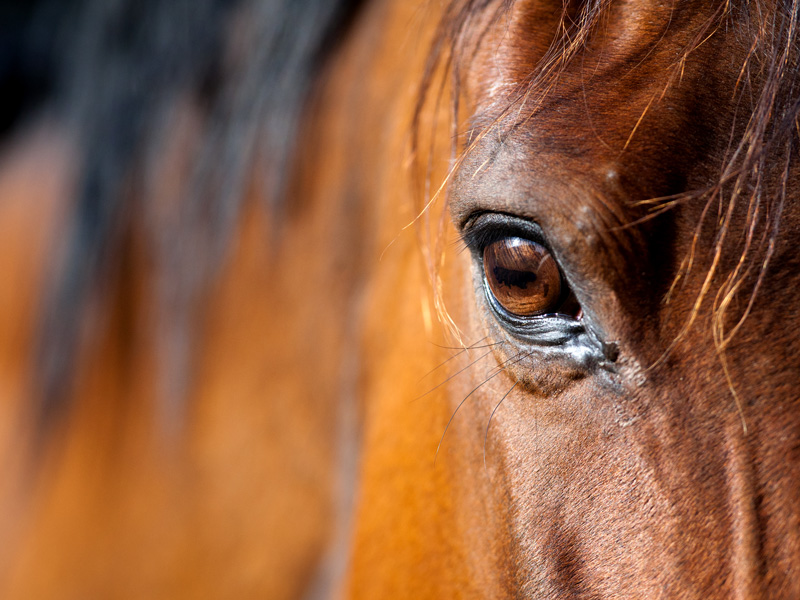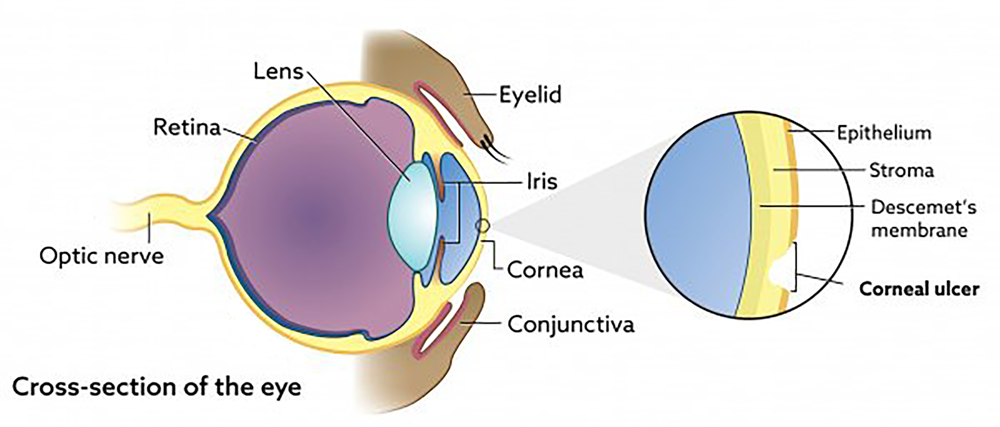A sore eye is a common complaint that our vets get called to see. The position of the equine eye and the flighty disposition of horses, can often predispose horses to injury.
Typical signs of a painful eye include;
- Ocular discharge
- Photophobia (eye sensitive to light) closed or squinty eye
- Swelling around the eye
- Corneal oedema (cloudy appearance to the eye)
- Reddened appearance of the conjunctiva
The most common cause of a painful eye is corneal ulceration. This is caused by trauma to the outermost surface of the eye, causing loss of the most superficial surface of the cornea. The cornea in horses is approximately 1mm thick and as such, is very easily traumatized. If the ulcer is simple and superficial (shallow), it should heal within 7 days with minimal scaring. However, equine eye ulcers can rapidly become infected, which is considered an emergency. If left untreated, an infected corneal ulcer may form a melting ulcer, a descemetocele or even cause the eyeball to rupture.
If you notice any of the clinical signs listed above, you should call us immediately.
To diagnose an eye ulcer, our vets will typically perform a thorough clinical examination, focusing primarily on the painful eye. Often, a dye will be placed in the eye to highlight the area of ulceration and allow our vets to establish its depth.
Once the vet has a clear understanding of the nature of the ulcer, an appropriate treatment regime will be established. Typically, this includes ointments for use in the eye as well as oral pain relief.
As previously stated, eye ulcers can heal quickly, but equally, can deteriorate quickly. If your horse is being treated for an eye ulcer, it’s crucial that you monitor is progress carefully and keep your vet informed if there is any deterioration (increased degree of pain, increased corneal oedema, increased discharge).
Tips if you find your horse with a painful eye:
- Call the vet
- Horses with injured eyes are often sensitive to light. If possible, move your horse into a stable or shaded paddock prior to the vet arriving.
- Don’t put any ointment in the eye. There are lots of different ointments for eye issues in horses and some can make ulcers worse rather than better.
- Horses often rub at sore eyes – you may need to supervise or distract your horse prior to the vets’ arrival to prevent them rubbing and further irritating the eye.
- Do not clean away the ocular discharge. The colour and quantity of discharge from your horses’ eye can give our vets vital information and assist in forming an appropriate treatment plan
- Note any injuries visible to the eyelid or the eyeball itself.


